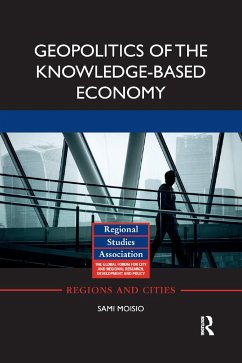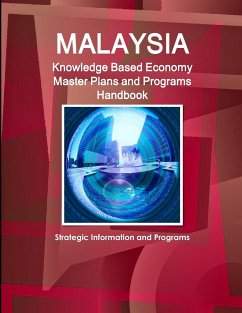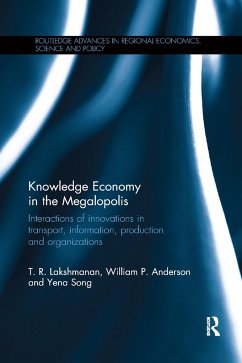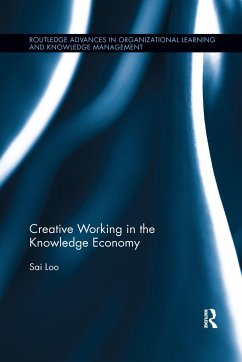
Dynamics of Economic Spaces in the Global Knowledge-based Economy
Theory and East Asian Cases
Versandkostenfrei!
Versandfertig in 1-2 Wochen
41,99 €
inkl. MwSt.
Weitere Ausgaben:

PAYBACK Punkte
21 °P sammeln!
This book addresses how economic spaces dynamically change within the context of the global knowledge-based economy. Specifically, it centers the discussion on integrated views of understanding and conceptualizing dynamic changes of global economy under the global megatrends of globalization, knowledge-based economy, information society, service world, climate change, and population aging. Focusing on East Asia, especially on Korea, it deals with case studies regarding the processes and patterns of these global dynamics, looking at economic spaces of various spatial scales and types of economi...
This book addresses how economic spaces dynamically change within the context of the global knowledge-based economy. Specifically, it centers the discussion on integrated views of understanding and conceptualizing dynamic changes of global economy under the global megatrends of globalization, knowledge-based economy, information society, service world, climate change, and population aging. Focusing on East Asia, especially on Korea, it deals with case studies regarding the processes and patterns of these global dynamics, looking at economic spaces of various spatial scales and types of economic actors. This book develops a theoretical model for understanding and analysing the dynamics of economic spaces that are being reshaped within the larger global economy. It also emphasizes the analysis of empirical studies at the level of firm, region, and state by considering an evolutionary perspective over time. In developing its theoretical framework, this book examines regional resilience, intangible assets, service innovation, path dependence, and other notions related to the evolution of economic spaces, and incorporates these elements into real-world case studies. The integrated theoretical framework examined here contributes a new perspective on spatial disparities in the global economy. An integral model of service innovation; the integration of path dependence and regional resilience; the interaction between firm and region for the accumulation of intangible assets; and the roles of governments and global firms: these are all essential to understanding the dynamics of economic spaces in East Asia. The theoretical model and case studies in this book suggest policy implications for developing countries, especially in the Asian and African regions, with regard to regional development and innovation policies.














